Two-Lane Blacktop (1971)
“They’re just a bunch of small-town car freaks, that’s all they are.”
|
Synopsis: |
|
Genres, Themes, Actors, and Directors:
Response to Peary’s Review: Indeed, even when The Girl (Bird) “enters their life” and “swims nude in front of them, they reminisce about old cars, not old flames.” Peary points out that “The Driver and the Mechanic epitomize the sad products of a frustration-making D.C. bureaucracy, specifically a Nixon government which is conducting a controversial war that makes complete apathy as inviting as a warm cozy bed.” He notes that “while other films were about the alienation of the drug culture and war protesters, Hellman’s pessimistic film is about the alienation of everyone else: both those who race around the desolate, poor, conservative country and all those people inside the cubicles they pass who are just as withdrawn and isolated from the problems/horrors of their world.” Peary discusses Two-Lane Blacktop at greater length in his Cult Movies book, where he notes that he finds it “so much more honest and less exploitative than the similarly plotted box office smash Easy Rider, another film about a routeless odyssey across America undertaken by society’s dropouts.” He describes Oates as, “as usual, a standout, showing the wide range of emotions of a troubled man” and providing “much wit to the film”. He adds that “most amusing, and pathetic, is how he keeps picking up the worst brand of hitchhikers… but keeps trying to find ideal companionship.” Peary asserts that while he likes this movie — “its characters, and its premise” — he finds the “beginning of the film… compelling” but “toward the end it becomes a bit tiresome and fizzles — just like the race.” I think that’s exactly the point, however. As The Girl makes yet another random decision near the end of the film about who she’ll hang out and travel with, we see that nothing’s really changed — life will continue to be about distraction, alienation, and thwarted attempts to connect; Two-Lane Blacktop is remarkably effective at portraying those still-enduring challenges of existence. Redeeming Qualities and Moments: Must See? Categories
(Listed in 1001 Movies You Must See Before You Die) Links: |
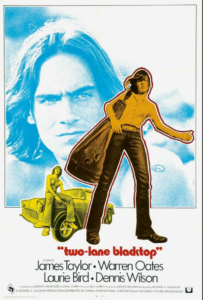
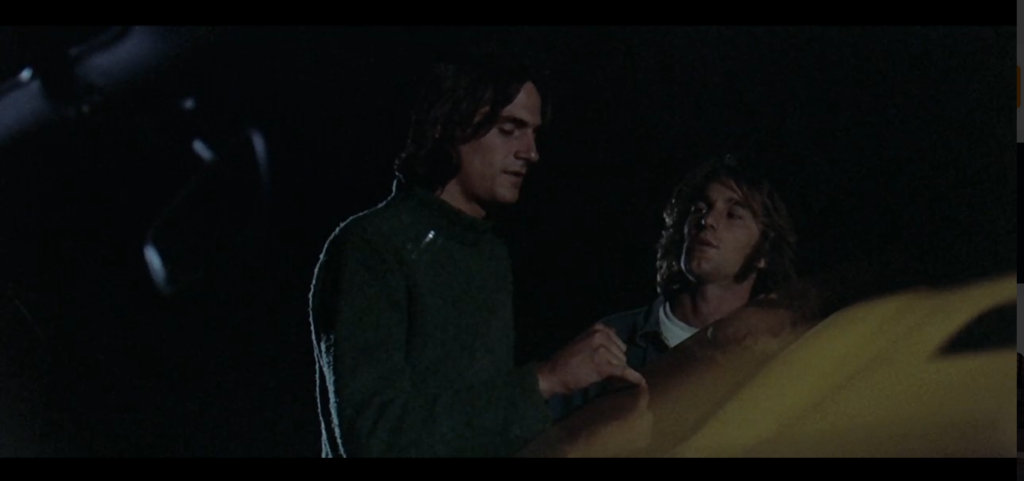
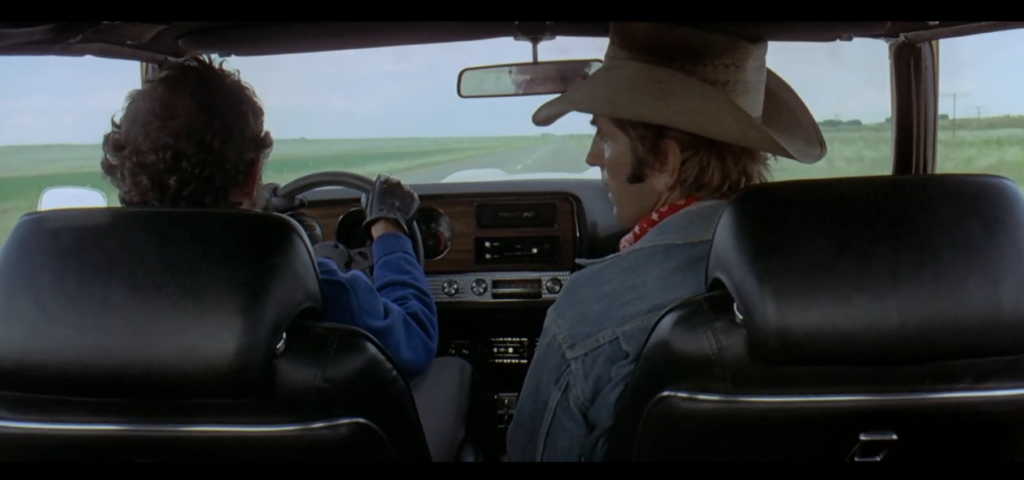
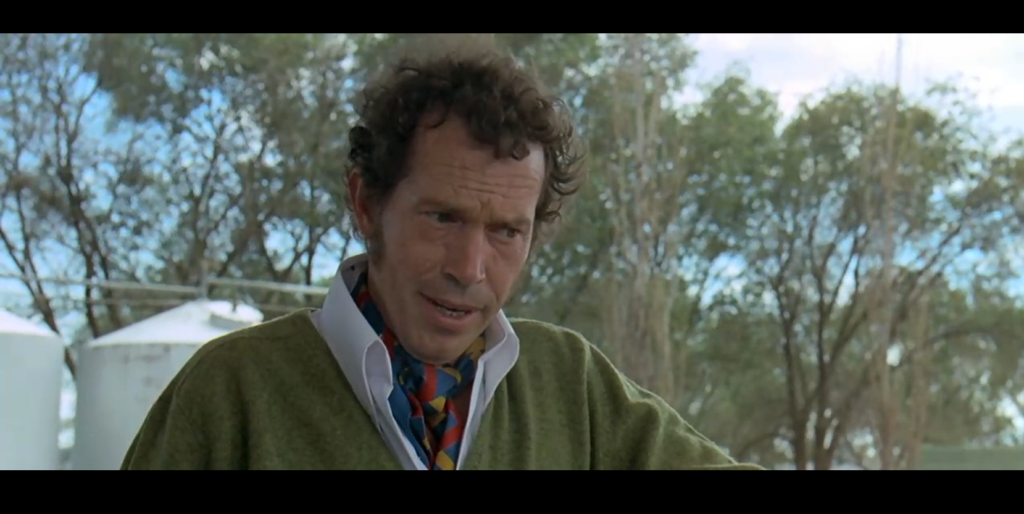
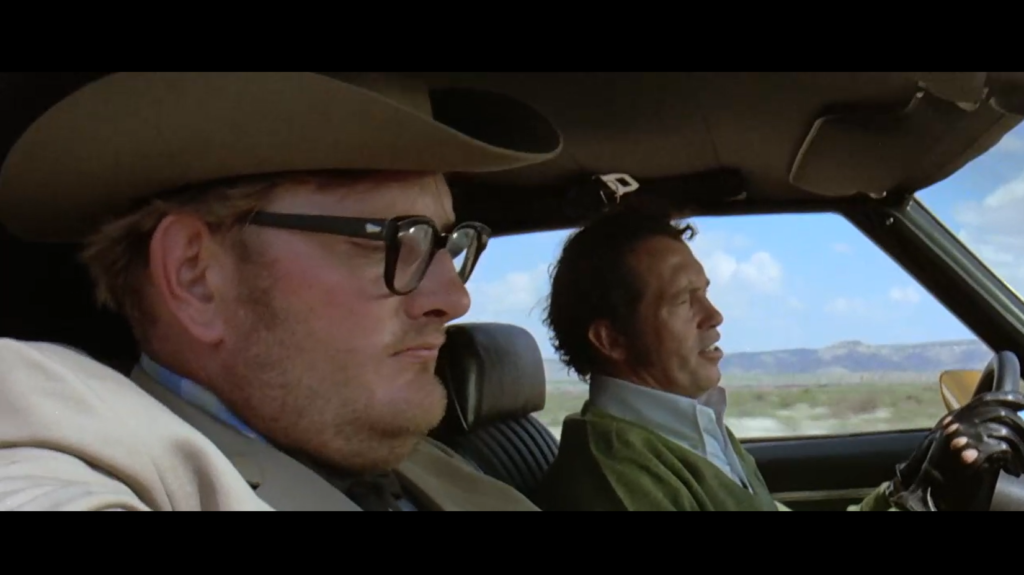
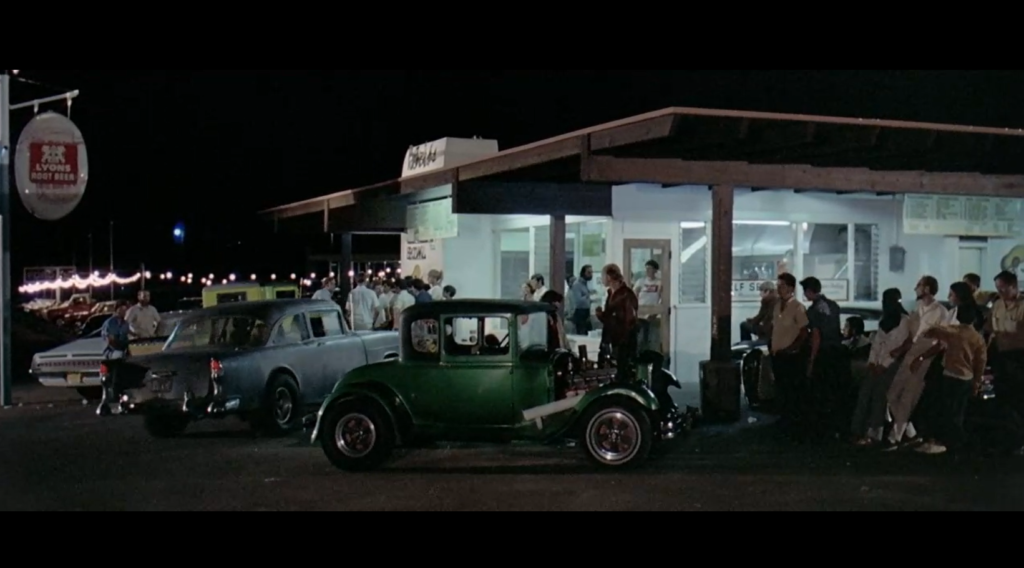
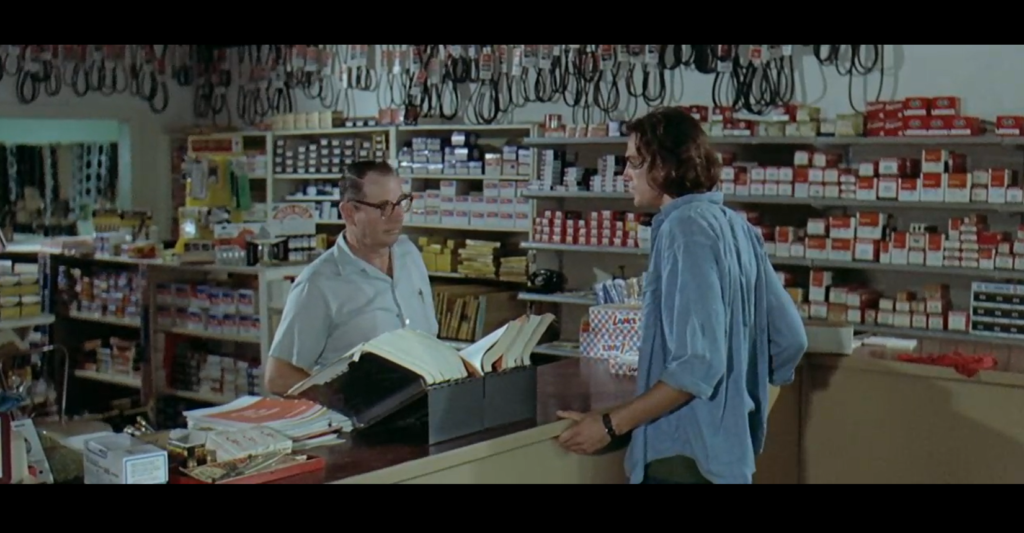
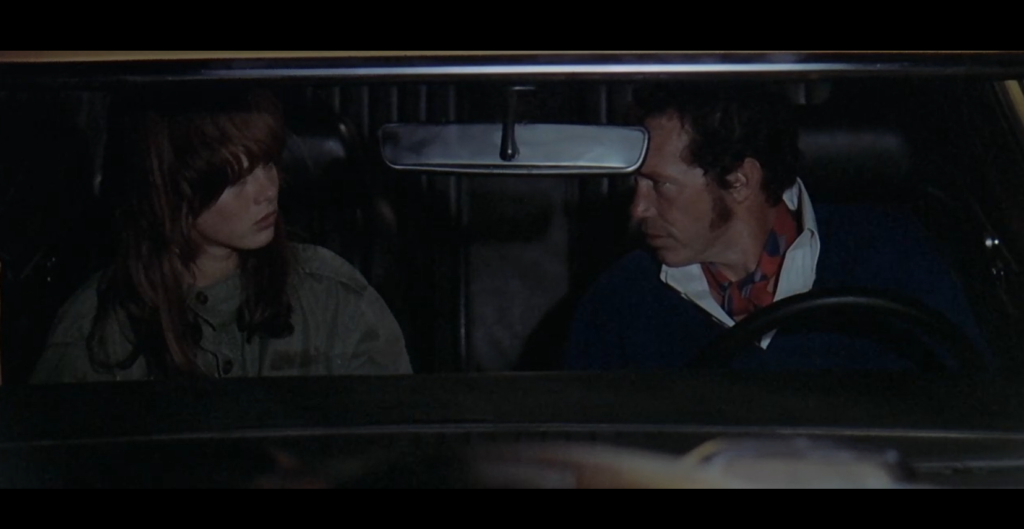
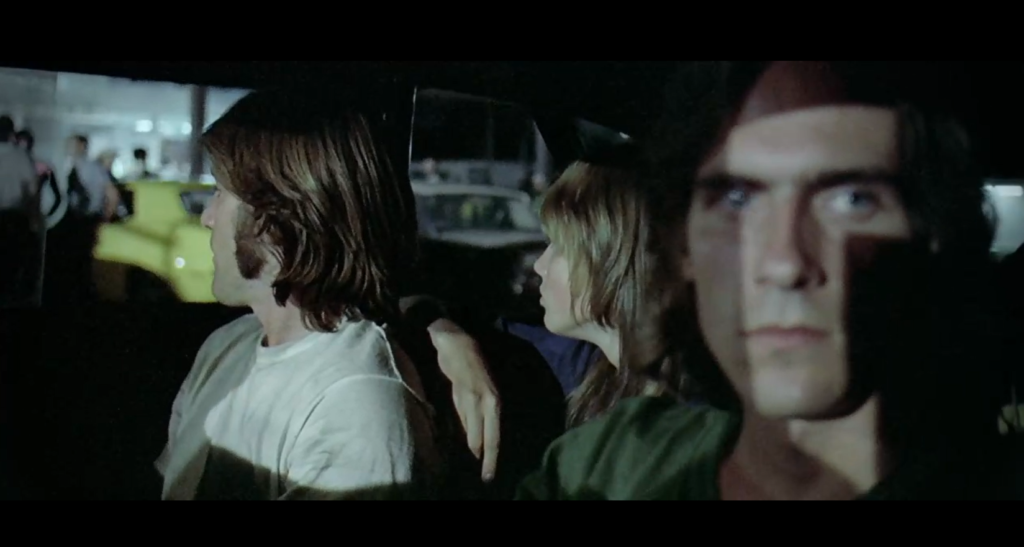
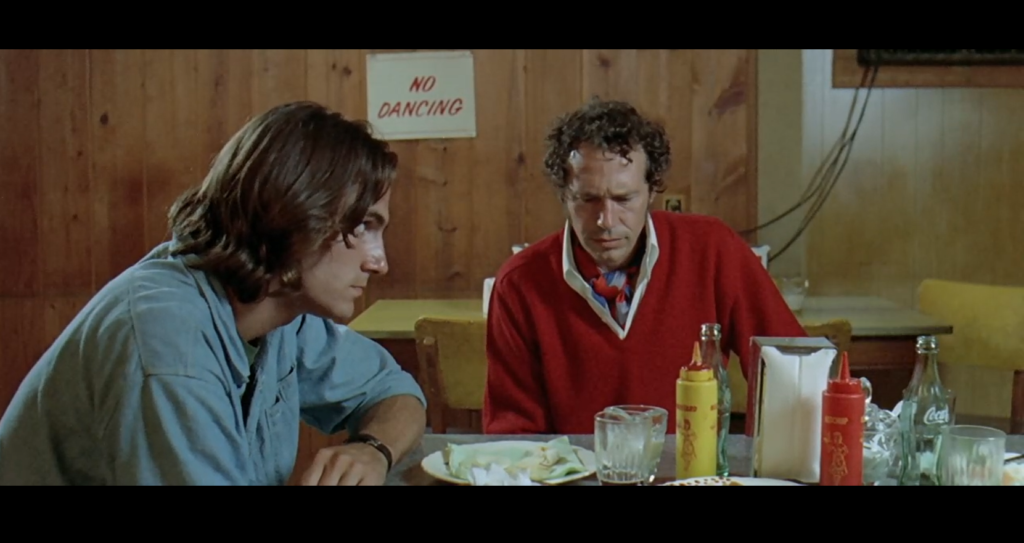
2 thoughts on “Two-Lane Blacktop (1971)”
⭐️⭐️ out of ⭐️⭐️⭐️⭐️⭐️
Rather dry, arid existential road film. Only seen it once but it has some significance as an example of the ’70s road film and was heavily referenced in Tarantino’s fun ode to B-movies Grindhouse (2007).
As a classic of its era, must see.
First viewing. Not must -see – unless the viewer is someone on the lookout for films that inexplicably end up referred to as ‘cult masterpieces’.
I’d heard about this film for years (of course) but hadn’t seen it until now. I was hesitant to catch up with it since I’m indifferent about director Hellman. Sometimes his work is ok (‘China 9, Liberty 37’) and other times it seems kind of pointless (‘Cockfighter’).
‘TLB’ falls into the latter category. It’s all well and good to see it as a metaphor – and, if that works for the viewer, fine (although I don’t think Hellman is an existentialist; it’s not like he’s Bergman) – but I looked at it on a surface level as the absurd premise that it is (later including its lapses in / disregard for logic) and found it boring as hell.
I was ready to bail halfway. If you stick around for the rest of it, there are a few fleeting moments of interest in the second half, involving road accident experiences. They don’t add to the whole.
When Harry Dean Stanton propositioned Oates’ crazy character, I did see it coming and I did laugh out loud. But, overall, the film gives the impression that the director couldn’t care less about his audience. The last bewildering 20 minutes are like sleepwalking.